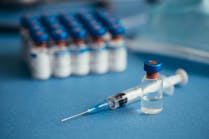FDA informs public about possible accuracy concerns with Abbott ID NOW POCT, Abbott responds
The U.S. Food and Drug Administration (FDA) sent out an alert reporting early data that suggest potential inaccurate results from using the Abbott ID NOW point-of-care test (POCT) to diagnose COVID-19. Specifically, the test may return false negative results.
“We are still evaluating the information about inaccurate results and are in direct communications with Abbott about this important issue. We will continue to study the data available and are working with the company to create additional mechanisms for studying the test. This test can still be used and can correctly identify many positive cases in minutes. Negative results may need to be confirmed with a high-sensitivity authorized molecular test,” said Tim Stenzel, M.D., Ph.D., director of the Office of In Vitro Diagnostics and Radiological Health in the FDA’s Center for Devices and Radiological Health.
The FDA is sharing early information available about potential inaccurate results in the spirit of transparency. The agency has been working with Abbott to analyze the information gathered to date and has worked with the company on a customer notification letter to alert users that any negative test results that are not consistent with a patient’s clinical signs and symptoms or necessary for patient management should be confirmed with another test.
The agency is aware of some scientific studies that have identified accuracy issues with Abbott ID NOW and is investigating whether it could be due to the types of swabs used or the type of viral transport media (material used to transport the patient’s specimen).
Abbott responded saying that Abbott's ID NOW is the fastest molecular point-of-care rapid test available today and has been delivering reliable results when and where they're needed. The availability and ease-of-access of ID NOW, which delivers results in minutes rather than a day or more, is helping to reduce the risk of infection in society by detecting more positive results than would otherwise be found.
Abbott said they are seeing studies being conducted to understand the role of ID NOW in ways that it was not designed to be used. In particular, the NYU study results are not consistent with other studies. While we've seen a few studies with sensitivity performance percentages in the 80s, we've also seen other studies with sensitivity at or above 90%, and one as high as 94%.
While we understand no test is perfect, test outcomes depend on a number of factors including patient selection, specimen type, collection, handling, storage, transport and conformity to the way the test was designed to be run. ID NOW is intended to be used near the patient with a direct swab test method.
It is our responsibility to provide healthcare professionals and the public with accurate information, and that's why we're doing the following:
· Further clarifying our product information to provide better guidance to healthcare providers that negative results should be considered in the context of a patient's recent exposures, history and the presence of clinical signs and symptoms consistent with COVID-19. Negative results should be presumed negative, but if inconsistent with clinical signs and symptoms or necessary for patient management, should be tested with an alternative molecular assay. We are also reinforcing proper sample collection and handling instructions. We are communicating this to our customers.
· Continuing to optimize this test as the world learns more about this virus. We're working to incorporate those learnings into the test as we do with all of our diagnostics tests.
Moving forward, Abbott has agreed to conduct post-market studies for the ID NOW device that each will include at least 150 COVID-19 positive patients in a variety of clinical settings. The FDA will continue to review interim data on an ongoing basis. The information gathered from the post-market studies can further help the agency understand the cause or patterns of any accuracy issues and inform any additional actions the company or the FDA should take.





